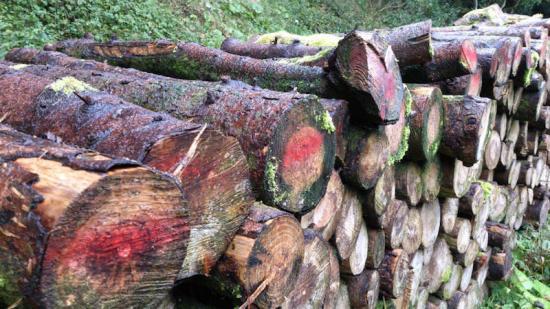A new tool to give rural regions a bite of the bioenergy market
18th August 2014

A new online tool called BISCUIT (BioPAD Supply Chain Unique Integrated Tool), has been launched to help the bioenergy market grow in remote and rural regions of Europe and to highlight business and enterprise opportunities to those looking to enter the sector.
BISCUIT is a product of BioPAD (Bioenergy Proliferation and Deployment), a €0.7 million two year project funded under the EU's Northern Periphery Programme (NPP) with partners in Finland, Northern Ireland, and Republic of Ireland. The tool allows anyone, whether they are supplier of raw materials, an individual or company interested in producing bioenergy products, or those wanting to use bioenergy in a business or home, the opportunity to find out about bioenergy supply chains and the opportunities this renewable fuel source provides.
Jointly developed by local researchers at the Environmental Research Institute (ERI), North Highland College UHI, this new innovative resource aims to assist the movement towards a low carbon society by encouraging the development of a responsible renewable energy market to the benefit of local communities and businesses.
Bioenergy fuels include wood products such as pellets and chips, energy crops and agricultural waste. Using these renewable sources of energy instead of coal, gas, or oil results in lower greenhouse gas emissions as well as providing local economic benefits. Using bioenergy often requires many stages before the source material is ultimate converted into heat. These steps can include cultivation or acquisition, procurement, processing, transportation, and combustion or conversion to produce heat, and/or electricity.
Each part of the supply chain represents an opportunity for a business or entrepreneur. In addition, transactions that take place for each part of the supply chain tend to keep money within the region, rather than paying to importing gas, oil or coal. By providing key information to a variety of users, from forest owners, haulage firms, machinery suppliers, to councils, and community groups, it is hoped that BISCUIT will increase the competitiveness of remote regions.
BISCUIT uses the wealth of information gathered and generated by the BioPAD partners, and generates a bespoke report according to initial choices made by the user. This produces a report customised to the users' interests, whether they lay with one or more fuel type (wood, energy crops, or other biomass), a specific part of the supply chain, or the whole process.
ERI researcher Dr Neil James said "While some areas of northern Europe have well-developed biomass supply chains, others face significant challenges in developing cost-effective and sustainable supply chains to better exploit their biomass resources. Through BISCUIT, the BioPAD project aims to provide a wider audience with a better understanding of how biomass supply chains work and provides access to expert advice and material at no cost to the end user. "
Along with the four partners, BioPAD includes 11 associated partners representing five countries with experience throughout the supply chain. BioPAD aims to help the development of local renewable bioenergy supply chains to provide sustainable enterprise opportunities for individuals and communities in remote and rural regions. The BioPAD project has gathered many case studies across Europe which demonstrate that in the appropriate setting developing a local bioenergy market produces significant opportunities for rural and remote areas, by improving security of supply, and stimulating the local economy by creating jobs and keeping payments for energy with in the community.
Now publicly available, BISCUIT was developed following an analysis of regional supply chains which included the district heating scheme in Wick, Caithness, fuelled with locally sourced wood chips and anaerobic digestion plant in Creed, Western Isles, which converts household organic waste into renewable energy.
Dr Kenneth Boyd added "As an international project BioPAD has drawn upon differences in experience and expertise between the various counties and jurisdictions of the project and encourage the transfer of knowledge to inform policy frameworks that support the deployment of renewable energies in rural areas. Using the breadth of knowledge and expertise from across Europe and using examples of best practice, bioenergy expertise, established methods and technology, BioPAD has developed the tool BISCUIT to provide the most effective model to develop localised bioenergy supply chains."
BISCUIT can be accessed free of charge at www.BioPAD.eu/BISCUIT and is available to download as an App from Google Play and the App Store.


